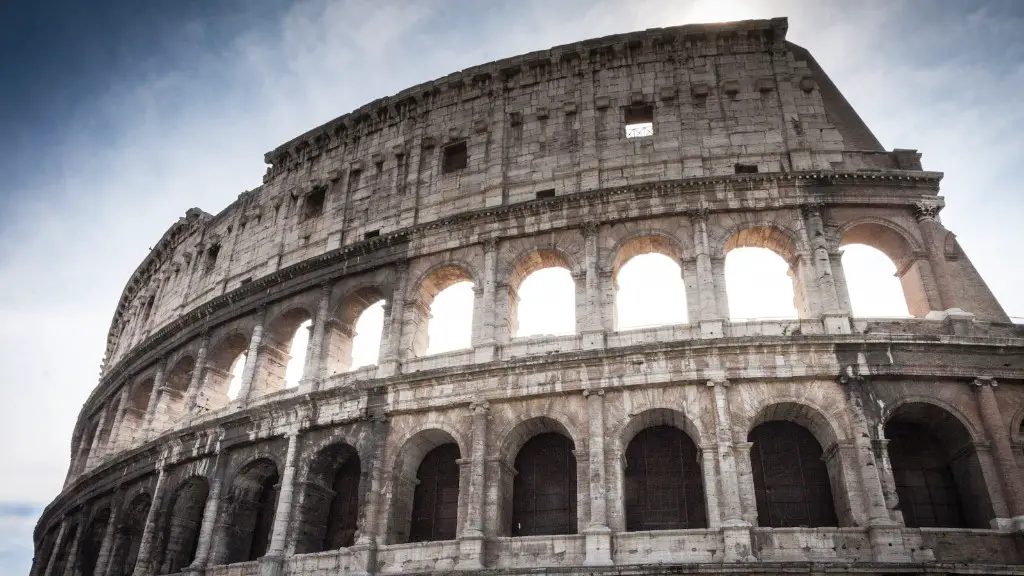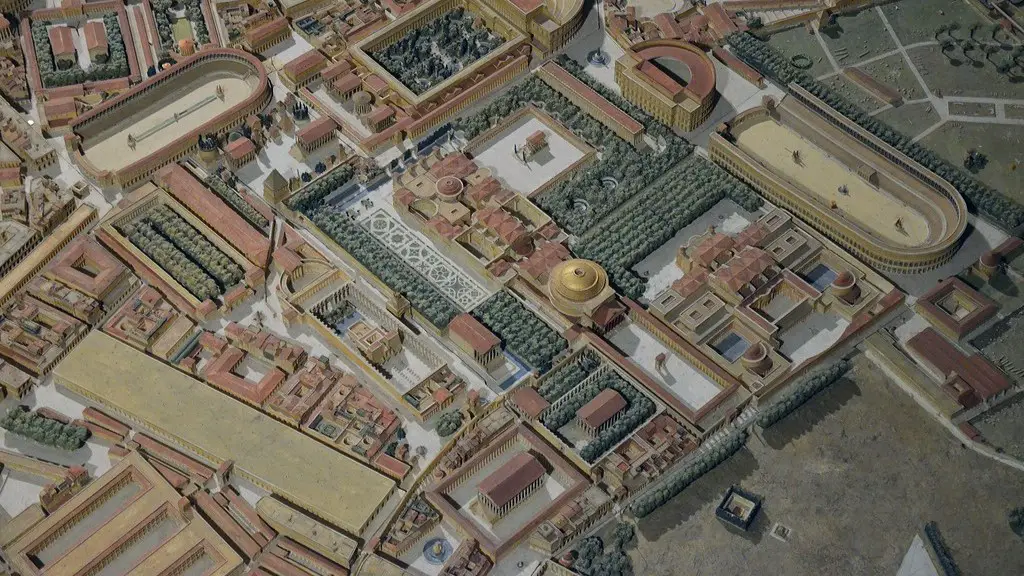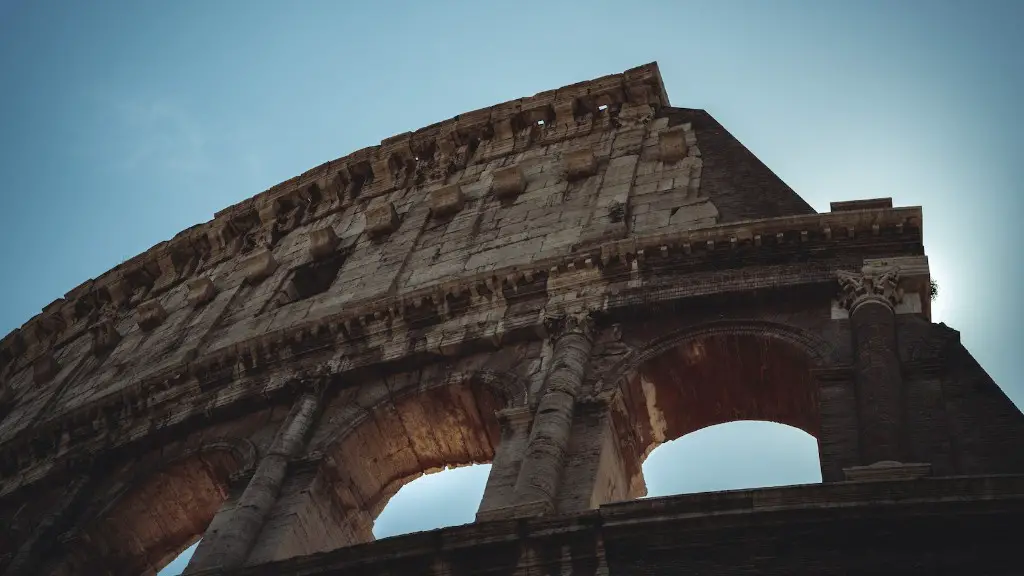Law was a fundamental component of Ancient Roman society. The first two major legal systems of the Roman Republic—the Law of the Twelve Tables and the praetors’ edict—were developed in the 5th century BC. These two legal systems helped Rome achieve legal unity, with citizens in the empire knowing that the same rules and laws applied to them no matter what part of the empire they lived in. By the 1st century BC, the Roman legal system was organized with a strict hierarchy of courts and a legal code that had the power to overrule previous legal decisions.
The Law of the Twelve Tables was the earliest code of laws established by the Romans. This code was implemented in the 5th century BC in order to create written laws that everyone in the empire could agree to. The Twelve Tables consisted of written laws regulating marriage, inheritance, property rights, debt, and crime. While the code was largely unsophisticated compared to modern laws, it established the foundation for legal unity throughout the Roman Empire.
The praetors’ edict was developed in the 3rd century BC and is considered the first Roman constitutional code. The edict gave the praetors the power to examine cases, settle legal disputes, and even create new laws to address the changing needs of the Roman Empire. In other words, it gave the praetors the power to act as law-makers in addition to law-enforcers. This was an important step forward in the development of a unified legal system throughout the Roman Empire.
The Roman legal system was based on precedent, which means that any court’s decision was binding for all future cases. This principle was closely related to the notion of stare decisis, which states that the decision of a court should stand as a legal precedent, even when it conflicts with previously established laws. In addition to the courts, there were also professional experts and legal advisors who advised both the courts and citizens about legal matters.
Another important aspect of law in Ancient Rome was the Roman Senate. In theory, the Senate had the power to veto or legislate new laws and to override laws passed by the praetors and other courts. In practice, however, the Senate’s role was mainly to advise the praetors and the Emperor on legal matters.
The Emperor also played an important role in the Roman legal system. The Emperor had the power to create imperial edicts that overrode any existing laws, and could even override the rulings of the courts and the Senate. The Emperor also had the power to pardon criminals who had been convicted in court. This power was generally used sparingly and was seen as a source of last resort, as it was seen to help maintain the balance between justice and mercy.
Today, Ancient Rome’s legal system may seem archaic and primitive, but it was an incredibly innovative system for its time. Through the Law of the Twelve Tables, the praetors’ edict, the principle of precedent, and the roles of the Senate and the Emperor, Ancient Rome established itself as one of the most advanced civilizations of its era in terms of legal unity and structure.
Legal Punishments in Ancient Rome
The punishments in Ancient Rome were severe and often included forced labor, fines, exile, and even capital punishment. Execution was reserved for only the most serious crimes, such as murder and treason. For lesser crimes, the punishments included public humiliation, flogging, and forced labor. These punishments varied in severity depending on the crime and the status of the perpetrator. For example, patricians were often given lighter sentences than plebeians.
The punishments for certain crimes in Ancient Rome also varied depending on the type of crime. For example, theft was punished with a fine or hard labor, while adultery was punished with exile from the city. Murder, however, carried the most serious punishment: execution. This was often done in public to serve as a deterrent to other would-be criminals, and was seen as one of the most effective ways to discourage crime.
As harsh as some of the punishments may seem, in many cases they were seen as preferable to the widespread use of slavery in Ancient Rome. By punishing criminals with hard labor instead of slavery, Rome was able to keep law and order while still recognizing the humanity of its citizens.
In addition to punishments, the use of public shaming was also an effective way of discouraging criminal behavior in Ancient Rome. Public shaming typically involved the perpetrator being paraded through the streets, often in humiliating clothing, or having to carry a sign listing their crime. Again, this was intended to discourage other citizens from committing similar crimes.
The Legacy of Ancient Roman Law Today
Today, the legacy of Ancient Roman law lives on in many aspects of modern legal systems. The idea of supremacy of law, for example, was a cornerstone of Roman legal theory, and it is now espoused by many modern countries. Similarly, the idea of stare decisis, which formed the basis of Roman law, is also still used today.
The Roman legal system was also successful in establishing a set of laws that were applicable throughout the empire. This paved the way for modern legal codes, which are developed in order to create unified legal systems in countries and empowers citizens to know that the same laws will apply to them no matter where they live.
Finally, the appearance of juries in trials was also another important legacy of Ancient Rome. Juries were developed in Rome to ensure that citizens had a say in legal matters and were not just subject to the decisions of the courts or the emperor. In modern legal systems, juries are still an important part of the legal process, and are seen as a vital tool for ensuring justice for all.
Conclusion
Ancient Rome’s legal system was one of the most advanced legal systems of its time. Its legacy is still seen today in many aspects of modern legal systems, from the idea of supremacy of law and stare decisis to the use of juries in trials. Roman law paved the way for a unified legal system in the European continent and beyond, and its legacy is still being felt today.



